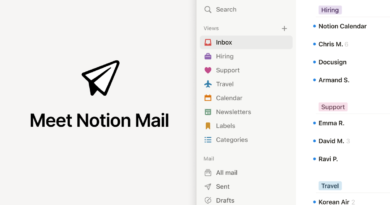Vectara lands $28.5M to supercharge enterprise search
Some years ago, three former Googlers — Amr Awadallah (who previously founded Cloudera), Amin Ahmad and Tallat Shafaat — set out to build what they describe as a “conversational search” platform for the enterprise. Their goal was to help organizations unlock data from their text-based files, chiefly by empowering developers to build conversational AI apps that can retrieve and summarize text from vast corporate data stores.
The fruit of their labor, Vectara, launched in late May. Backed by $28.5 million in seed funding led by Race Capital with participation from Emad Mostaque, the founder of Stability AI (the AI startup behind the text-to-image system Stable Diffusion), Vectara provides AI-powered, API-based search tech that it claims can handle queries of an arbitrary length, level of ambiguity and language across troves of multilingual documents.
“Vectara empowers developers to rapidly and easily build conversational AI products with world-class retrieval, summarization and data privacy directly on top of the data that matters to their business,” Awadallah told TechCrunch in an email interview. “Our industry faces a few key challenges that we are actively trying to overcome.”
Vectara brings to mind “cognitive search” engines such as Amazon Kendra and Microsoft SharePoint Syntex that draw on enterprise knowledge bases to cobble together answers to employees’ questions. Growth in the demand for such search tech mirrors the growth in the amount of data that companies have to wrangle in the course of their business.
One source estimates that the average firm stores hundreds of terabytes of data, the vast majority of which goes underused for insights. According to a Forrester survey, between 60% and 73% of all data within corporations is never analyzed for larger trends.
That’s where a search engine like Vectara could help, asserts Awadallah.
At a high level, Vectara lets users ask questions about their company’s data and returns a summary with citations to the source data set. The platform ingests new documents in real time, providing “client-configurable” data retention, which enables organizations to discard the original documents and text after they’ve been indexed so that no residual data from the company remains in Vectara’s search index.
Ahmad explained via email:
“We train [our AI] on a wide variety of publicly licensed sources of data taken from the internet (e.g. Wikipedia) and other sources, [and] we mitigate inaccuracy and bias by constraining our AI models to retrieve the most relevant content from data sets that our customers have chosen to index. This content, in turn, is used to ground the summarization that our platform provides.”
Admins can control and monitor the usage of Vectara-indexed data and revoke a user’s access at any time. This affords a level of governance that’s oftentimes lacking in cognitive search platforms, Awadallah says.
Image Credits: Vectara
“We’re opening up this application of AI for the millions of apps and websites out there that rely on search for core navigation,” he continued. “This technology enables teams to better use time that’s being wasted, capture money that’s being left on the table and begin unlocking further insights that become available once search intent is understood.”
So what are customers using Vectara’s tech for, exactly? Awadallah says that brands like Conversica, Apex Chat, Metus and Oncotelic Therapeutics have been applying it to use cases like legal discovery, ecommerce search, news monitoring and financial analysis.
“With Vectara, companies can add neural-net powered semantic search to research workflows,” he added. “We truly believe the ability to express our needs verbally represents a major evolution in how user interfaces will be designed in the future, similar to how the iPhone led to all apps being redesigned to allow us to use our fingers for clicking, zooming, pinching and swiping.”
Cupertino, California-based Vectara, which has 24 employees, plans to use its seed funding to expand its engineering and go-to-market teams with an emphasis on European, Middle Eastern and Asia Pacific regions.
Expansion will be key if Vectara hopes to stay ahead of rivals in the enterprise search space. Forethought, like Vectara, offers an AI-driven information retrieval system built for corporate environments. There’s also Coveo, a Canadian startup that builds enterprise-focused search and personalization services powered by AI.
Fortunately for Vectara, the cognitive search market is exploding — it’s anticipated to be worth $15.28 billion by 2023, up from $2.59 billion in 2018, according to Markets and Markets. If Vectara plays its cards right, it might just carve out a slice of the increasingly lucrative pie.
Vectara lands $28.5M to supercharge enterprise search by Kyle Wiggers originally published on TechCrunch





